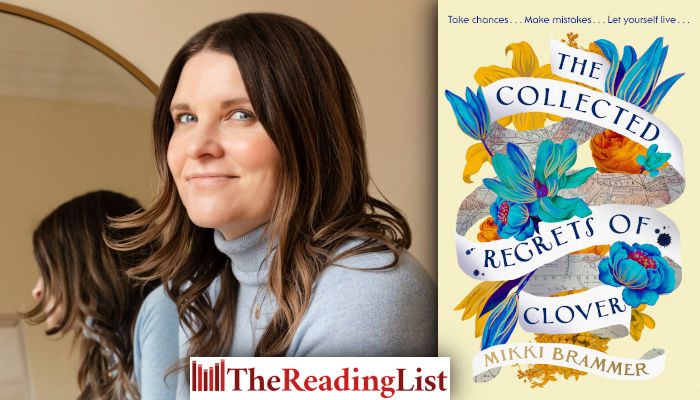‘Regret belongs to the past’ – Mikki Brammer on the ideas behind her novel The Collected Regrets of Clover
More about the book!

Mikki Brammer’s The Collected Regrets of Clover is a big-hearted and life-affirming debut about a death doula who, in caring for others at the end of their life, has forgotten how to live her own.
‘I wanted to present everything I’d learned about mortality, grief and regret in a way that was fun, optimistic and joyful.’
When I first read about the concept of a death doula, I was fascinated that someone would dedicate their entire life to watching people die. It seemed like such a noble thing to do – to commit yourself to never look away from anyone’s pain, no matter how harrowing it was. To know that there are people who exist just to make sure others don’t suffer a lonely death is so deeply moving to me. I wanted to explore what would compel someone to choose that path in life, and what the role required of them both professionally and personally, which is how the character of Clover came about.
As someone who had long had anxieties around the topic of death, I realised that what made it scarier was that nobody really seemed to talk about it in Western society. And books about the topic often felt so depressing, which made me avoid them! So I wanted to find a way to make death more palatable, and to present everything I’d learned about mortality, grief and regret in a way that was fun, optimistic and joyful.
Before writing the book, and, as a way to explore my own anxiety about death, I had challenged myself to be as curious as I could about mortality and grief by reading articles and listening to podcasts. And then I discovered that it’s quite easy to go down a death-related rabbit hole in New York City. As well as death cafés (which are a real thing!), I attended everything from lectures about Stoic philosophy, to message circles (kind of like seances), and talks on the most common regrets of the dying. I also read a lot of books – from the Tibetan Book of the Dead to Atul Gawande’s Being Mortal – and listened to the experiences of death doulas, nurses, doctors, hospice workers, and other people who have spent time ushering others through the dying process. My goal was to absorb as many perspectives as possible and then use Clover’s journey in the book to try to convey the things I found most interesting and poignant—and that might be most helpful to people who shared my anxiety. Most of all, I wanted to do it in a way that was optimistic and fun rather than morbid and depressing!
Aside from considering what my own definition of ‘living a beautiful life’ would be, I think the most important thing I learned was how to hold space for someone who is dying or grieving. What’s interesting is that the things we think might be helpful – like trying to be as positive as possible – can actually make things harder. I learned that it’s important to let people be sad and talk about their regrets as much as it is to focus on the positive things in their lives. And also that everybody’s grief is their own and everyone deals with it differently, so the most valuable thing you can do is to just listen rather than try to fix things. We often put so much pressure on ourselves to say the right thing in these situations, when the ‘right’ thing doesn’t actually exist, or it might differ from one day to the next, depending on how the person is feeling.
My hope is that readers will get so caught up in Clover’s story that they will be more open to considering those topics in relation to their own lives, without feeling like they’re being preached to. I also hope it helps contribute to more open, comfortable conversations about death and grief in society in general.
The Collected Regrets of Clover is out now.
~~~
This article was originally published in The Penguin Post, a magazine about books for book lovers from Penguin Random House South Africa.
Categories Fiction International
Tags Mikki Brammer Penguin Random House SA The Collected Regrets of Clover The Penguin Post
